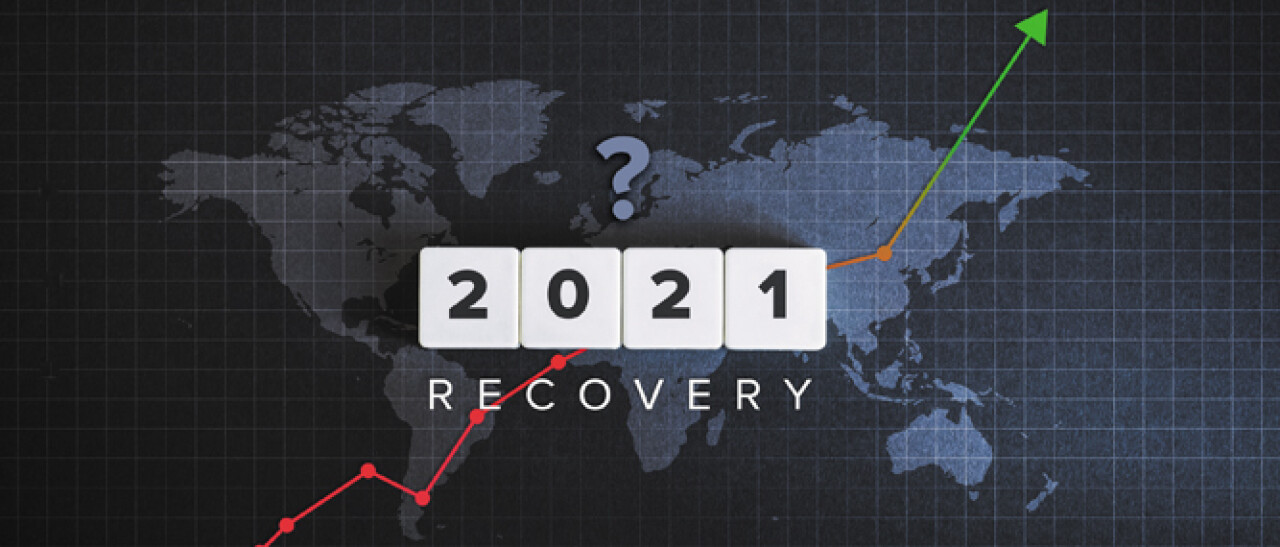According to the Organization For Economic Co-operation and Development (OECD), global economic growth to be expected at 5.8% this year. Aided by COVID-19 vaccine rollouts and accommodative fiscal and monetary policies, projections suggested that global GDP rise in the coming years is 3.7% in 2022.
The vaccination rate in Malaysia is moving very slowly. As of June 8, only 8 percent of Malaysia's total population, or 2.6 million people, has received at least one dose of the Covid-19 vaccine. Today, only 1.6 million people, or 5 percent of Malaysia's population, have received both doses of the vaccine. Despite the vaccination, there is a surging epidemic infecting thousands and killing dozens of Malaysians daily.
The recovery will be uneven across countries. The countries with an effective track, test, and isolation systems where vaccination will be deployed rapidly will likely perform relatively well. Countries that can manage and control infections through effective public health measures and have been quick to vaccinate their people against COVID-19 are seeing their economies recover more quickly. But while vaccination rates are progressing well in many advanced economies, poorer and emerging-market countries.

In Malaysia, new cases were still rising, and May 31 2021 was detecting new variants. The authorities, therefore, imposed the MCO 3.0 nationwide starting from June 1. Essential sectors remain operative under the MCO 3.0, but schools are closed, social gatherings are banned, and inter-state travel is not allowed. International borders remain closed, and overseas travel is restricted.
The economic fallout hurt the most vulnerable. Some businesses and start-ups already go out of business. People being asked to work from home and schools and universities taking their classes online during the lockdowns is only expected to set children and youth from less well-off backgrounds back by years. This would only have more long-lasting damage to the economy. Despite the colossal policy Band-Aid, and even in an upside scenario, the pandemic will have damaged the socioeconomic fabric of countries worldwide.
So far, the government and central bank have been pumping in money, despite the breakthroughs on the vaccine front. Prime Minister Tan Sri Muhyiddin Yassin announced an additional RM40 billion worth of aid to help stem the fallout of a strict lockdown of MCO3.0. Of that amount, RM5 billion will be in direct fiscal injection. The relief package, dubbed Pemerkasa Plus, will boost the healthcare system, continue previous welfare programs and help businesses weather the lockdown. Finance Minister Datuk Seri Tengku Zafrul Abdul Aziz had already announced an extra allocation of RM200 million in buying more hospital beds.
Implications of COVID-19 on real estate

A shift of workspace behavior and demand
With social distancing occur in our society, more people tend to work from home. Staying away from offices, hotels and shops had to close. With an immediate consequence, some tenants struggled to pay rent and had to file for bankruptcy. It seems that people's behavior would be altered for good in the long run. With significant tenants surprised by how work-from-home might work for them, there is a need for reduced space requirement in work offices.
The use of technology
Businesses nowadays adapt more quickly to remote working, causing people to use broadband technology. While e-commerce had been steadily disrupting retail and warehouse real estate during COVID-19, forcing a pace of change in retail. More people are using technology and the internet of things more frequently in their businesses during this pandemic.
To conclude, the government of Malaysia should continue to invest in public & social health measures to limit the impact of virus outbreaks and supporting firms and jobs to ensure a faster recovery when restrictions are lifted.
What does it mean for businesses?
There is a need to reassess your real estate investments portfolio. Understanding tenants' sustainability, collaborate with tenants, reviewing renting and leasing arrangements.
Build flexibility into your business process by offloading non-core assets hence looking into shared services for cost efficiency and efficacy.
Investing in the digital revolution. Data and analytics as well as automation to understand changes in consumer behaviors
How can Industrial Malaysia help
Companies need to focus on their transformation and growth during these unprecedented times. We help them by finding assets for new operations growth or diversification of business portfolios. Industrial Malaysia assists companies that restructured to dispose of non-core assets to enable business resiliency. For personalization of services, please speak to us at hello@industrialmalaysia.com.my.
